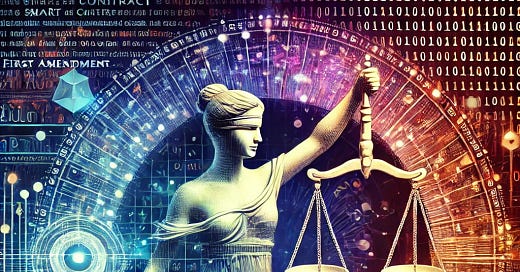On November 26, 2024, the U.S. Court of Appeals for the Fifth Circuit delivered a landmark decision overturning the Treasury Department's sanctions against Tornado Cash, a cryptocurrency mixer accused of facilitating money laundering activities. The court determined that the Treasury's Office of Foreign Assets Control (OFAC) exceeded its authority by sanctioning Tornado Cash's immutable smart contracts, as these do not constitute "property" under the International Emergency Economic Powers Act (IEEPA).
Implications of the Decision
This ruling has significant implications for the regulation of decentralized technologies and the scope of governmental authority. By asserting that immutable smart contracts cannot be owned or controlled, the court challenges the government's ability to impose sanctions on decentralized software protocols. This decision could set a precedent limiting regulatory reach over decentralized platforms, potentially encouraging innovation within the cryptocurrency industry. However, it also raises concerns about the effectiveness of combating illicit activities facilitated by such technologies.
Software as Speech and First Amendment Protections
The court's decision indirectly touches upon the debate over whether software code is protected as free speech under the First Amendment. While the ruling did not explicitly address this issue, it aligns with earlier legal perspectives that recognize code as a form of expression. In contrast, a recent ruling by the Southern District of New York determined that the functional aspects of code used in protocols like Tornado Cash do not qualify for First Amendment protection.
This divergence highlights the ongoing legal complexities surrounding software code and free speech rights.
Conclusion
The Fifth Circuit's decision to overturn the sanctions against Tornado Cash marks a pivotal moment in the intersection of technology, law, and individual rights. By limiting the definition of "property" to exclude immutable smart contracts, the court has set a precedent that may influence future regulatory approaches to decentralized technologies. This ruling underscores the necessity for legislative clarity in addressing emerging technologies and their implications for privacy, innovation, and security. As the legal landscape continues to evolve, this case serves as a critical reference point in balancing governmental authority with constitutional protections in the digital era.
Not financial or legal advice, for entertainment only, do your own homework. I hope you find this post useful as you chart your personal financial course and Build a Bitcoin Fortress in 2024.
Thanks for following my work. Always remember: freedom, health and positivity!
Please also check out my Bitcoin Fortress Podcast on all your favorite streaming platforms. I do a weekly Top Bitcoin News update every week on Sunday, focused on current items of interest to the Bitcoin community. Please check it out if you haven’t already. Also now on Fountain, where you can earn Bitcoin just for listening to your favorite podcasts.
Follow me on Nostr:
npub122fpu8lwu2eu2zfmrymcfed9tfgeray5quj78jm6zavj78phnqdsu3v4h5
If you’re looking for more great Bitcoin signal, check out friend of the show Pleb Underground here.
Lightning tips appreciated here.




